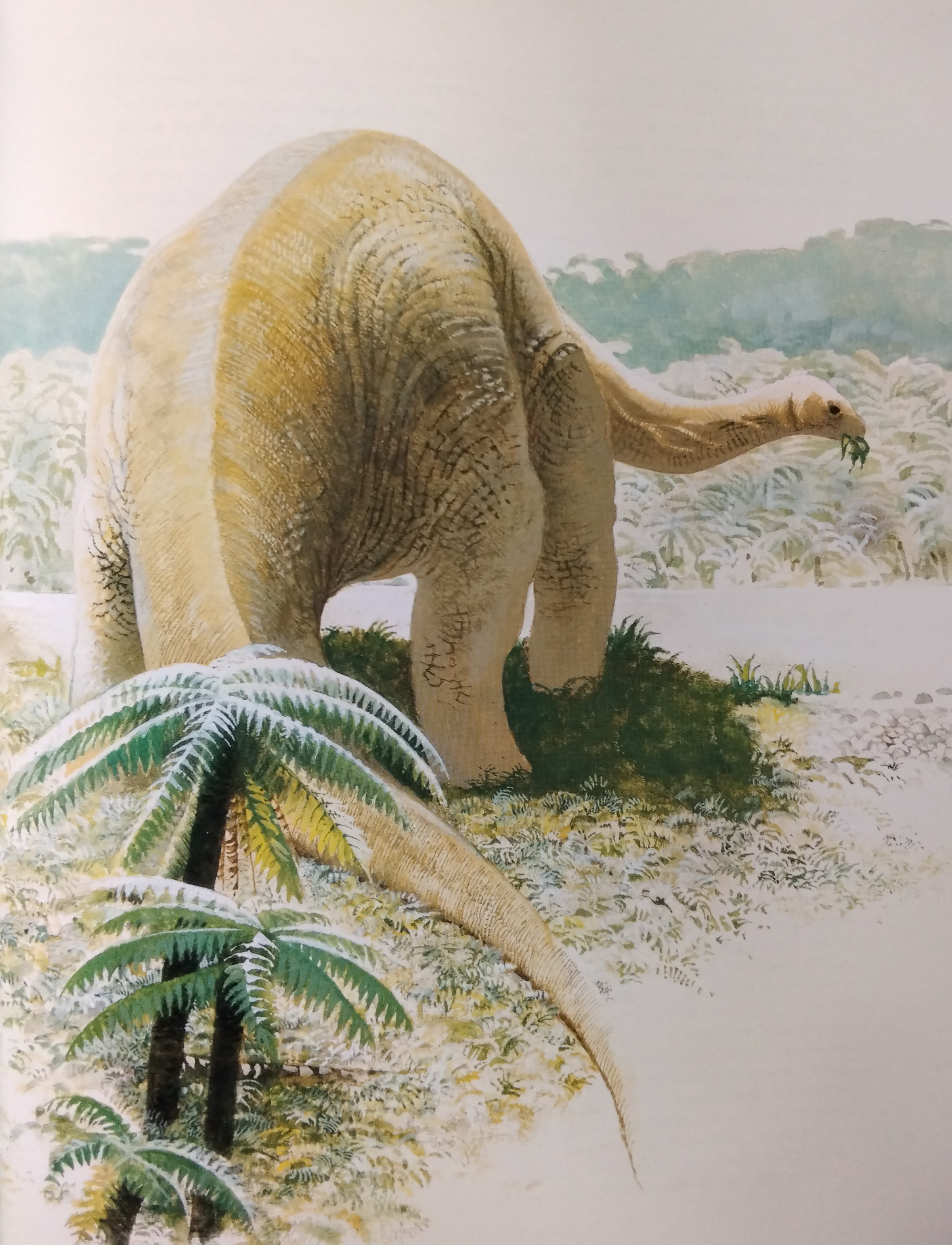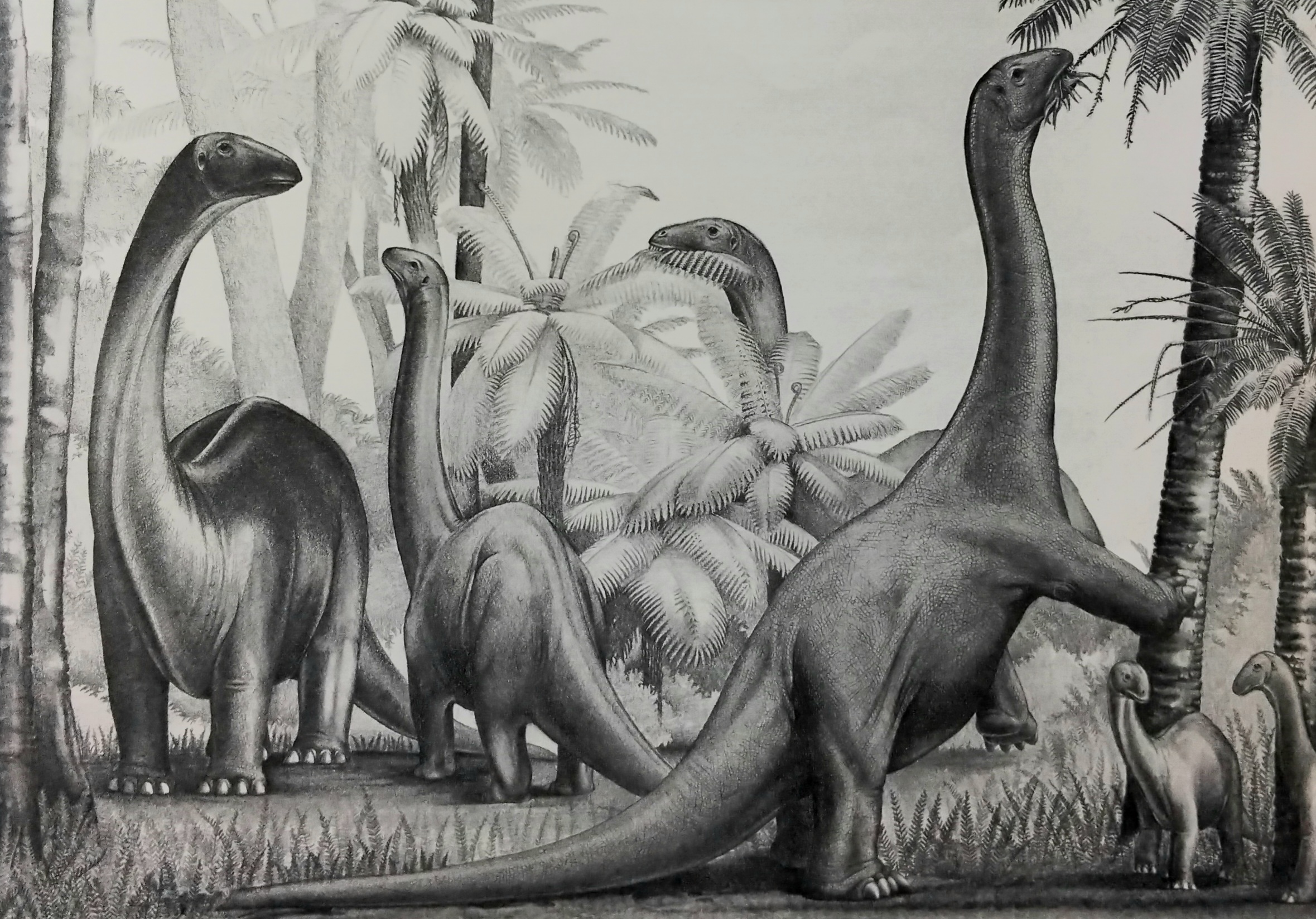Rhoetosaurus Brownei
| Rhoetosaurus brownei Temporal Range: Middle Jurassic | |
 | |
| Classification | |
| Genus | Rhoetosaurus |
| Species | R. brownei |
| Fossil record | |
| Fossil range | Middle Jurassic |
Rhoetosaurus brownei is a species of large sauropod dinosaur that lived in what is now southeastern Queensland, Australia, during the Middle Jurassic period, approximately 180 million years ago. This plant-eating dinosaur is known from fossilized remains discovered at Durham Downs Station, near Roma, in 1924.
Discovery and Description
In 1924, workers uncovered fossilized bones in a creek at Durham Downs Station, leading to the collection of over 190 kilograms of fragments. These remains were transported to Brisbane, where they were identified by H.A. Longman as belonging to a previously unknown sauropod dinosaur. In 1926, Longman described and named the species Rhoetosaurus brownei, with the name derived from "Rhoetus," a giant from Greek mythology, and "saurus," meaning "lizard."
Subsequent excavations yielded additional fossils, including vertebrae, limb bones, and portions of the tail. By 1927, Longman estimated the total length of Rhoetosaurus to be approximately 12 meters, though this was likely a conservative figure. The bones of this dinosaur are exceptionally large, with a femur measuring 1.5 meters in length.
Significance
Rhoetosaurus is one of Australia's most significant sauropod discoveries and among the oldest sauropod fossils in the Southern Hemisphere. Its skeleton provides insights into the evolution of

sauropods and their adaptations for weight-bearing and plant-based diets. Despite its incomplete nature, the fossil assemblage includes features unique to sauropods, such as complex vertebral structures and large weight-bearing limbs.
Further Research
Interest in Rhoetosaurus waned for several decades, but renewed efforts in the 1970s and later identified additional fragments. Excavations at the original site uncovered more bones embedded in tough sandstone, requiring meticulous work to free them for study. The ongoing analysis has helped refine our understanding of Rhoetosaurus and its ecological role during the Jurassic period.[1]
